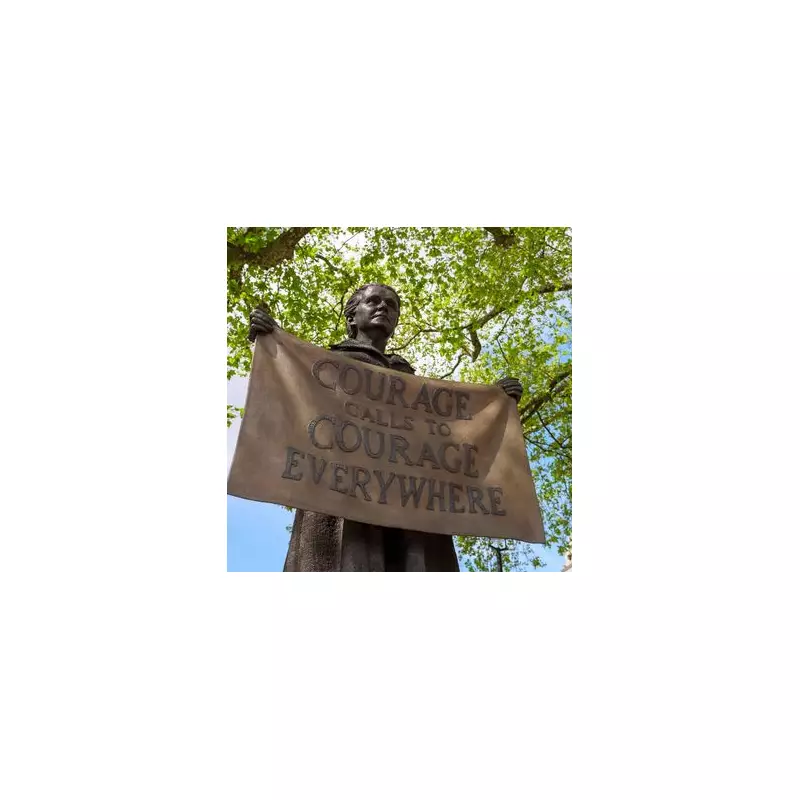
Landmark Legal Challenge Questions Terror Proscription
The High Court has been presented with a startling argument: the suffragettes, celebrated pioneers of women's rights, could have been banned as a terrorist organisation if today's legislation had existed in their time. This revelation emerged during a legal challenge mounted by Huda Ammori, the co-founder of the direct-action group Palestine Action, against the Home Office's decision to proscribe her organisation.
The case, which began on Wednesday, centres on former Home Secretary Yvette Cooper's move to outlaw Palestine Action under anti-terrorism laws. This ban, effective from 5 July, made membership or support for the group a criminal offence, carrying a potential prison sentence of up to 14 years.
Unprecedented Use of Terrorism Legislation
Representing Ms Ammori, Raza Husain KC described the proscription as unprecedented. He stated to the court in London, "Palestine Action is the first direct-action civil disobedience organisation that does not advocate for violence ever to be proscribed as terrorist."
Mr Husain explained that his client drew inspiration from a long British tradition of direct-action civil disobedience, explicitly naming the suffragettes and Iraq war protesters. He detailed how the suffragettes had engaged in property damage and even attempted arson at Westminster Abbey.
In his written submissions, the barrister argued that the logic used to ban Palestine Action could be applied to "direct action groups of all kinds". He contended, "The suffragettes would have been liable to proscription if the Terrorism Act 2000 regime had been in force at the turn of the 20th century."
Widespread Arrests and Public Protest
The court also heard that the proscription has led to significant legal consequences. Mr Husain informed the judges that there have been more than 2,000 arrests following the ban. Those detained included a diverse cross-section of society: priests, teachers, pensioners, retired British Army officers, and notably, an 81-year-old former magistrate.
As the hearing proceeded, a large crowd gathered outside the Royal Courts of Justice in support of Palestine Action, holding signs that read "I oppose genocide, I support Palestine Action". Police officers were seen escorting several protesters away from the scene.
Another lawyer for Ms Ammori, Owen Greenhall, framed the act of holding protest signs as classic civil disobedience. He drew a powerful historical parallel, stating, "The consequence of the Secretary of State's position is that Rosa Parks would not have any weight to her right to freedom of expression, simply because she deliberately chose not to move on a bus."
The Home Office's Defence
Sir James Eadie KC, representing the Home Office, defended the ban, arguing that it "strikes a fair balance between interference with the rights of the individuals affected and the interests of the community."
In his written arguments, Sir James emphasised that the Home Secretary is not required to consider what proportion of a group's activities are terrorist-related. He noted that Parliament intended the proscription power to be available even where only some of an organisation's activities are 'concerned in terrorism', and there is no requirement for such activities to occur at a specific frequency.
He also pointed out that the ban has not prevented people from protesting against Israel's actions in Gaza, but that some individuals have "repeatedly sought to flout Palestine Action's proscription."
Following the first day of the hearing, Huda Ammori declared the proscription "one of the most extreme attacks on civil liberties in recent British history," warning that it sets a dangerous precedent for all protest movements, from anti-fascist groups to climate campaigners. She vowed, "We will not stop defending the fundamental freedoms of speech, protest, and political expression that belong to all of us."
The hearing, presided over by Dame Victoria Sharp, Mr Justice Swift and Mrs Justice Steyn, is scheduled to conclude on 2 December, with a written judgment expected at a later date.





